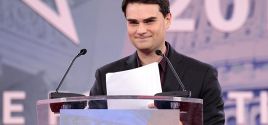Doubling Down On Secrecy: ITU Believes Secret Media Strategy Key To Avoiding SOPA/ACTA Fateby Mike MasnickTechdirt Dec. 04, 2012 |
Popular 
Schumer Moves to Silence Criticism of Israel as Hate Speech With 'Antisemitism Awareness Act'

As Poll Finds Ukrainians Want to End War, U.S. Pushes Zelensky to Bomb Russia and Expand Conscription

FBI Pays Visit to Pro-Palestine Journalist Alison Weir's Home

Federal Judge Orders Hearing Into Questionable 'Auction' of Infowars to The Onion

'More Winning!' Ben Shapiro Celebrates Trump Assembling an Israel First Cabinet
 As the WCIT (World Conference on International Telecommunications) gets under way in Dubai, the ITU is making its play to regulate the internet, potentially to aid authoritarian governments in censoring or limiting the internet, or to divert money from innovative internet companies to stagnant state telcos out of a claim of "fairness." There's obviously been a lot of talk about it, and the ITU keeps claiming that it's just a neutral body to facilitate discussions, even as increasing evidence suggests it's urging many of the crazier proposals forward itself. And now it's come out that ITU officials recently held a "secret" meeting to figure out how they were going to avoid getting SOPA'd, having the world rise up in protest as it tries to implement its internet regulatory regime. Following some bizarre and paranoid fantasy about how the anti-ITU, anti-WCIT efforts are really just because an unnamed "lobbying group" didn't like one proposal (the one mentioned above about diverting money from internet companies to telcos), the meeting got down to business: how could they use social media to prevent SOPA- or ACTA-like uprisings from the public: In response to the anti-WCIT “campaign,” according to the September retreat’s preparatory materials, the ITU reluctantly launched a “counter-campaign,” which the agency believes “has been fairly successful outside the US and somewhat successful even in the US,” where “some of the statements made to denigrate ITU and WCIT are so extreme that they were easy to challenge and rebut.”Of course, the campaign doesn't really appear to be going that well -- especially since so much of it revolves around "deflect[ing] media questions from secrecy, taxes and censorship" to the blandly empty (and absolutely silly) statement that "the revised ITRs have the exciting potential to pave the way for a broadband revolution in the 21st century." I'm sure that sounds catchy on a tweet. The problem, of course, is that folks on the internet don't tend to believe that kind of bureaucrat-speak when they know it's not true. As Downes notes: Here’s the unvarnished truth, which no PR agency can help the agency talk, tweet, or prevaricate their way around: The commercial Internet emerged and matured entirely since the treaty was last reviewed. It developed in spite of the ITRs, not because of them.Once again, these bureaucrats really have no clue what they're doing. |



